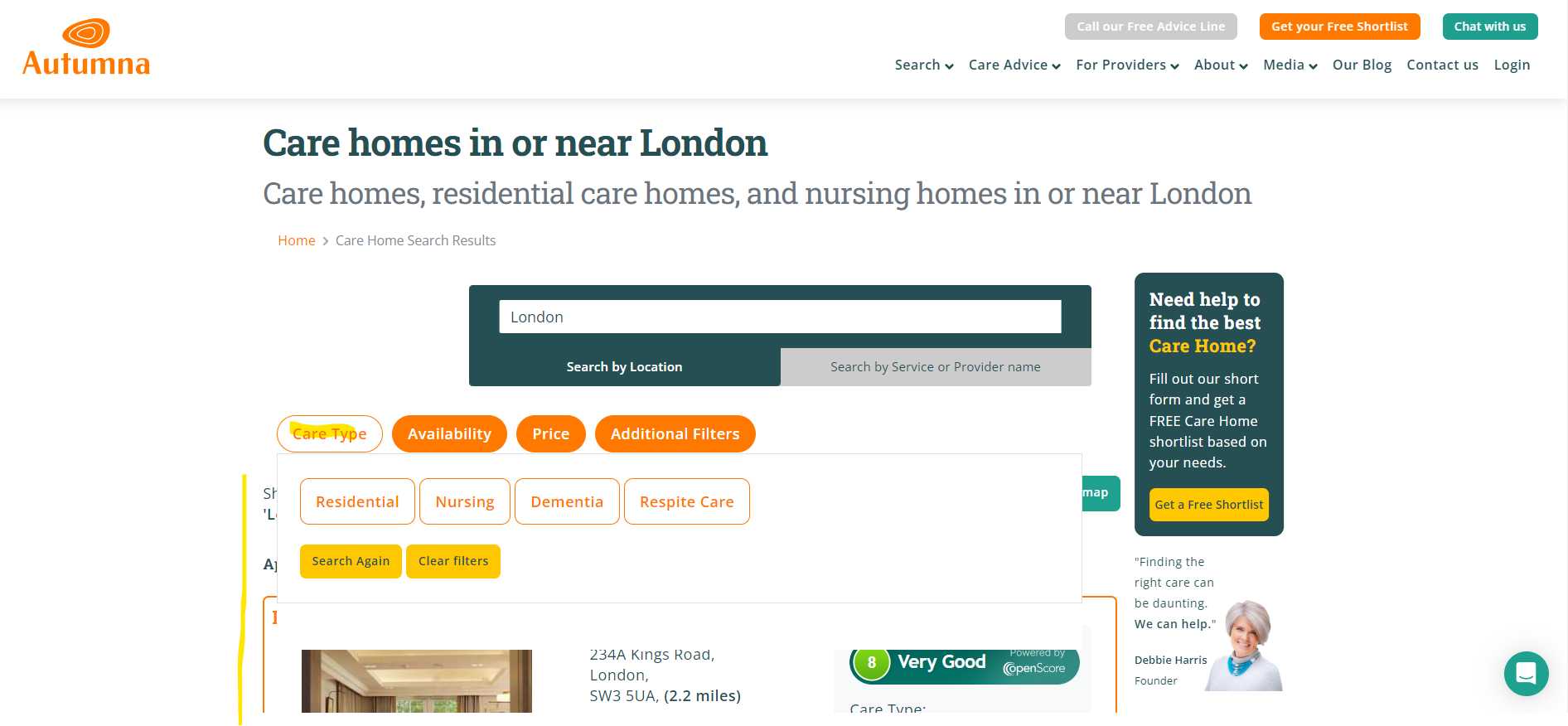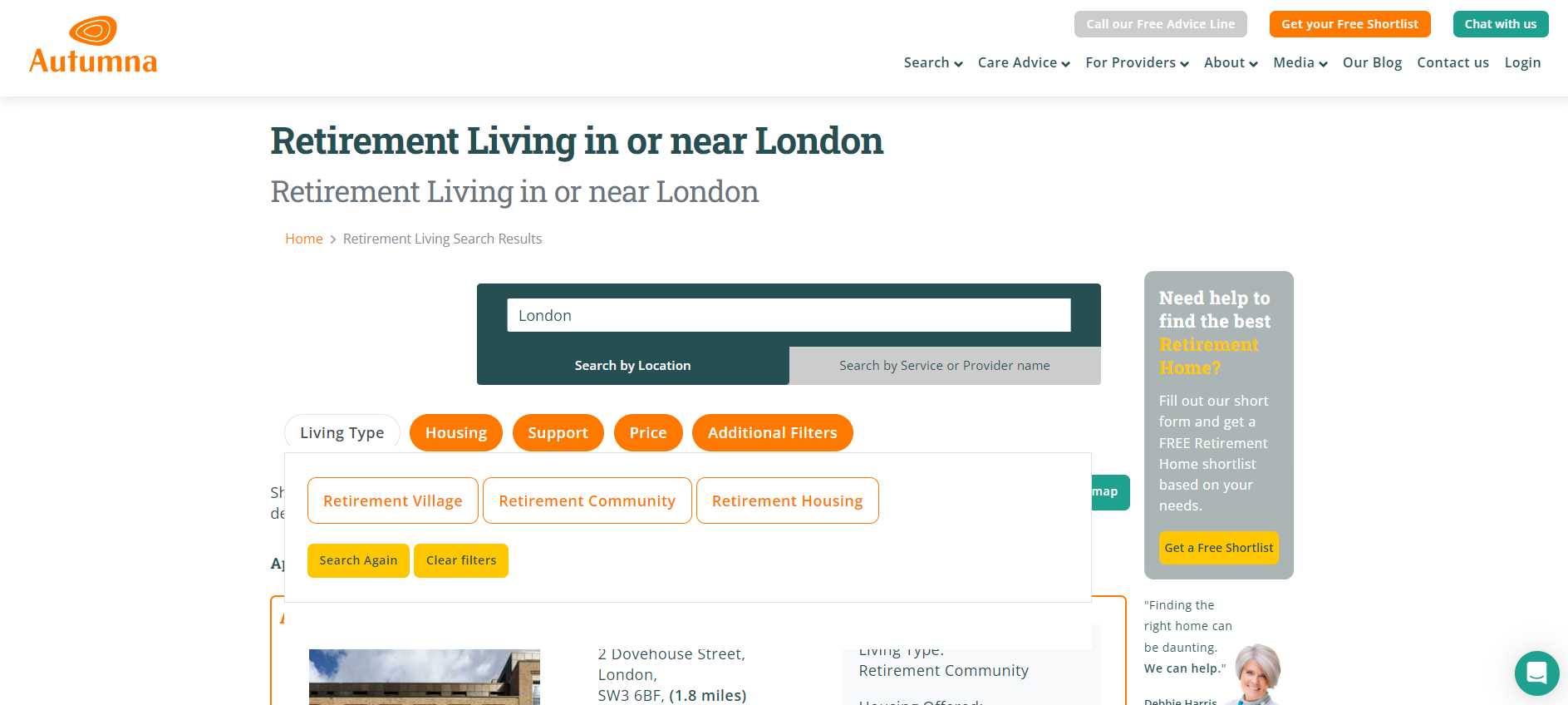Posted by Janine Griffiths
What is the Difference Between a Retirement Home and Nursing Homes?

While retirement and nursing homes both offer accommodation and support to elderly people, they provide different living arrangements that cater to specific needs.
Both terms are often misunderstood or used interchangeably but they are not the same. Understanding the difference between a retirement home vs nursing home is crucial for making informed decisions about care options for yourself or a loved one.
This blog will explore the key differences between these two types of care facilities, helping you choose the best fit based on health, independence, and personal preferences.
What is a retirement property?
Retirement homes, also known as independent living communities or senior living communities, are residential properties designed for older people who are generally in good health and able to live independently.
These communities typically offer a range of housing options, such as flats, cottages, or bungalows, and are equipped with amenities and services that cater to an active, maintenance-free lifestyle.
The primary focus of a retirement home is to provide a comfortable, secure environment where residents can enjoy their retirement years with minimal responsibilities. These homes often feature social and recreational activities, communal dining options, housekeeping services, transportation and creating a lively community atmosphere.
However, unlike nursing homes, retirement homes do not offer medical care or assistance with daily living activities. This makes them ideal for individuals who are still capable of managing their own day-to-day needs but seek a supportive and socially engaging environment.
Definition of nursing home
Nursing homes are residential environments that provide round-the-clock medical care and assistance to elderly people with significant health needs.
These facilities are designed for people who require a higher level of care than what is available in a retirement home or assisted living facility.
The services they offer include skilled nursing care, rehabilitation, and assistance with daily activities such as bathing, dressing, and eating. Residents of nursing homes often have chronic illnesses, disabilities, or conditions that require continuous monitoring and medical attention. The staff typically includes licensed nurses, certified nursing assistants, and other healthcare professionals who work together to ensure that each resident receives the appropriate care.
Nursing homes often provide specialised services like physical therapy, occupational therapy, and speech therapy, tailored to help residents maintain or improve their quality of life. The environment in a nursing home is more structured, focusing on meeting the physical and medical needs of residents, while also providing social and recreational activities suited to their abilities.
Differences between retirement and nursing homes
Both retirement and nursing homes strive to create a comfortable and welcoming environment, but they differ in terms of the level of care, independence, and amenities they offer. We discuss these in more detail below:
Level of care
One of the most significant differences lies in the level of care provided. Retirement homes are designed for individuals who are largely independent and require minimal assistance with daily activities. In contrast, nursing homes offer extensive medical care and support, catering to those with complex health conditions or those recovering from surgery or illness. The compassionate care provided in nursing homes includes 24-hour supervision, ensuring that residents receive the medical attention and personal care they need at all times.
Independence
Retirement homes prioritise maintaining a resident’s independence, offering services that allow seniors to enjoy a lifestyle with only the necessary support. These communities are perfect for those who are still active and self-sufficient but appreciate the convenience of having meals, housekeeping, and social activities readily available. On the other hand, in nursing homes independence is balanced with necessary assistance. The focus is on ensuring that residents are safe and well-cared for, even if they are unable to manage on their own.
Facilities
The facilities in retirement homes are often designed to support an active and social lifestyle. They may include fitness centres, swimming pools, communal dining areas, and beautifully landscaped gardens where residents can relax and socialise. However, it is important to note that the specific amenities and facilities differ depending on the retirement home in question.
Nursing homes, while also offering communal spaces, have a much bigger focus on medical facilities. These may include on-site clinics, rehabilitation rooms, and specialised equipment to assist with mobility and healthcare needs. Both types of homes strive to create a comfortable and welcoming environment, but the amenities reflect the different levels of care each provides.
Social Environment
A vibrant social environment is at the heart of retirement homes, where activities, clubs, and events are tailored to encourage community and friendships among residents. These homes encourage an active, engaged lifestyle with plenty of opportunities to connect with others. Nursing homes also value social interaction, but the activities are often adapted to suit the residents' varying health conditions and capabilities. The emphasis in nursing homes is on creating a nurturing, supportive environment where residents feel connected and cared for, despite any physical or medical limitations.
What factors should be considered when choosing between a retirement and nursing home?
Choosing between retirement and nursing homes depends on your level of independence, lifestyle, budget and health. Unlike traditional residential care homes, nursing homes are for those with significant healthcare needs. So, if you or your loved one is healthy, mobile and capable of managing daily activities with minimal assistance then a nursing home is unlikely to be the best option for you.
However, it is worth understanding some of the other main factors to consider when choosing between a nursing home vs retirement home if your needs should ever change in the future.
Structure & Environment
If you do not require round-the-clock support and a structured environment, then a retirement home may be the best option for you. A nursing home offers a more structured environment such as medical supervision, established routines, and activities that are modified to fit around the needs of the people that live there.
This differs from a retirement home where residents live more autonomous lifestyles. While there is still some social interaction through social activities, meals and community, the structure is not as rigid or defined as it is in a nursing home.
Mobility
If you struggle with mobility and you have trouble getting around, then a nursing home may be your best option. Of course, this would depend on a number of other factors too but it is certainly something to think about if you also have a chronic illness or your care needs change in the future.
Financial Considerations
Nursing homes generally have higher costs compared to retirement homes, because they have nursing staff onsite 24/7 and they care for residents with more complex needs. However, when it comes to evaluating the options that are going to be the most affordable for you, it is important to review your financial resources. This includes any annuities, government assistance, savings and other options, to determine which option will be the most viable for your circumstances.
For more information on care costs check out our blog, ‘Ultimate guide to self-funding care’.
Flexibility
Some nursing homes offer temporary, respite care for those that are recovering after a hospital discharge, or illness. Respite nursing care is typically provided when a person’s usual carer needs a break or is otherwise unavailable for a temporary period of time.
It is important to note that retirement homes are a much bigger, more permanent commitment to accommodation and a lifestyle that is not as suitable for elderly people that require medical care.
But what if you do not have significant healthcare needs but you still need extra support and assistance in a residential setting? In our blog ‘Retirement Home vs Care Home: Key Differences Explained’, we have outlined all of the things you need to consider when deciding whether you need a retirement home or care home without nursing provision.
You can also check out our video below on the differences between residential and nursing homes, if you think a traditional care home may be better suited to your needs.
Finding a retirement home vs nursing home
So now you know the difference between retirement and nursing homes, how do you find a facility that is going to work for you?
Thankfully, Autumna makes the whole process of finding a retirement or nursing home easier.
All you have to do is head over to our directory and select the type of care that you need. In this case it will either be Care Homes or Retirement Living.

The next step depends on the type of care you selected. We outline this below.
Nursing Homes
After selecting Care Homes at the top of the search bar, the next step is to type in your preferred location and this will bring up a number of relevant homes in your area.

If you are looking for a nursing home, you will then have the opportunity to select the Care Type, which includes residential, nursing, dementia and respite care.

You can also select care homes based on availability, price and additional filters, which gives you a number of different options.
Retirement Homes
After selecting Retirement Living at the top of the search bar, you can then type in your specified location and this will bring up a number of retirement properties in your preferred area.

From here you can choose your preferred living type, which includes retirement village, retirement community and retirement housing. This also allows you to choose how many bedrooms you need.

You can then choose the type of housing you want, the level of support needed, price and additional filters, which highlights a number of available options.
Still having trouble narrowing it all down?
If you are still unable to determine whether you need a retirement home vs nursing home or other care facility, our FREE shortlisting tool can help you narrow your choice down further.
All you need to do is answer a few questions about your needs and we can generate a list of suitable facilities based upon your answers.
However, if you still have additional questions, no problem! You can also contact our advice line on 01892 335 330.
Receive a Free Care Provider Shortlist!
Let our expert team of advisers get your search off to a great start.
Tell us a little about your needs and we'll send you a bespoke shortlist of care providers! Click the button below to begin, it takes just a few minutes.
Other articles to read
From the blog

Older Persons Care Advice
Importance of person centred values in care
July 4th, 2025
Looking for care that truly puts you first? Discover why person centred values in care matter and how to find services that treat you like a person, not a task.

Older Persons Care Advice
How the assisted dying vote affects end of life care
July 3rd, 2025
What does the assisted dying vote mean for care, choice and dignity at the end of life? Discover what’s changing, and how it could affect your future.

Older Persons Care Advice
Winter Fuel Payment Eligibility review: What’s changed in 2025?
July 2nd, 2025
Confused by the 2025 Winter Fuel Payment eligibility review? Discover who still qualifies, what’s new, and how to make sure you’re not left out in the cold.
Frequently Asked Questions
A retirement village is a development built specially for elderly people between the ages of 55-60. These communities are designed for seniors that are looking for independence and support where needed. Retirement villages often include a range of facilities and amenities for their residents, such as libraries, gyms, swimming pools and restaurants. On the other hand, a nursing home is a type of care home that provides residential accommodation as well as healthcare. One of the main differences between a retirement village vs nursing home is that nursing homes have a qualified nurse on site round-the-clock, supported by care assistants, whereas a retirement village does not.
The main advantage of a retirement village is that it offers residents the chance to live independently while still having the convenience of on-site facilities, amenities, social opportunities and support where needed. Often the properties are specially adapted for older people and there are usually meals and activities offered as part of the package.
It is important to note that for some people, the cost of retirement villages can be quite significant as many retirement properties charge a monthly or annual fee on top of the property costs. The monthly and annual cost covers the expenses of maintaining the properties. Luxurious retirement homes will also charge a premium.
Finding a retirement or nursing home is easy. All you have to do is head over to the search bar on the Autumna homepage and select the type of property you want.






